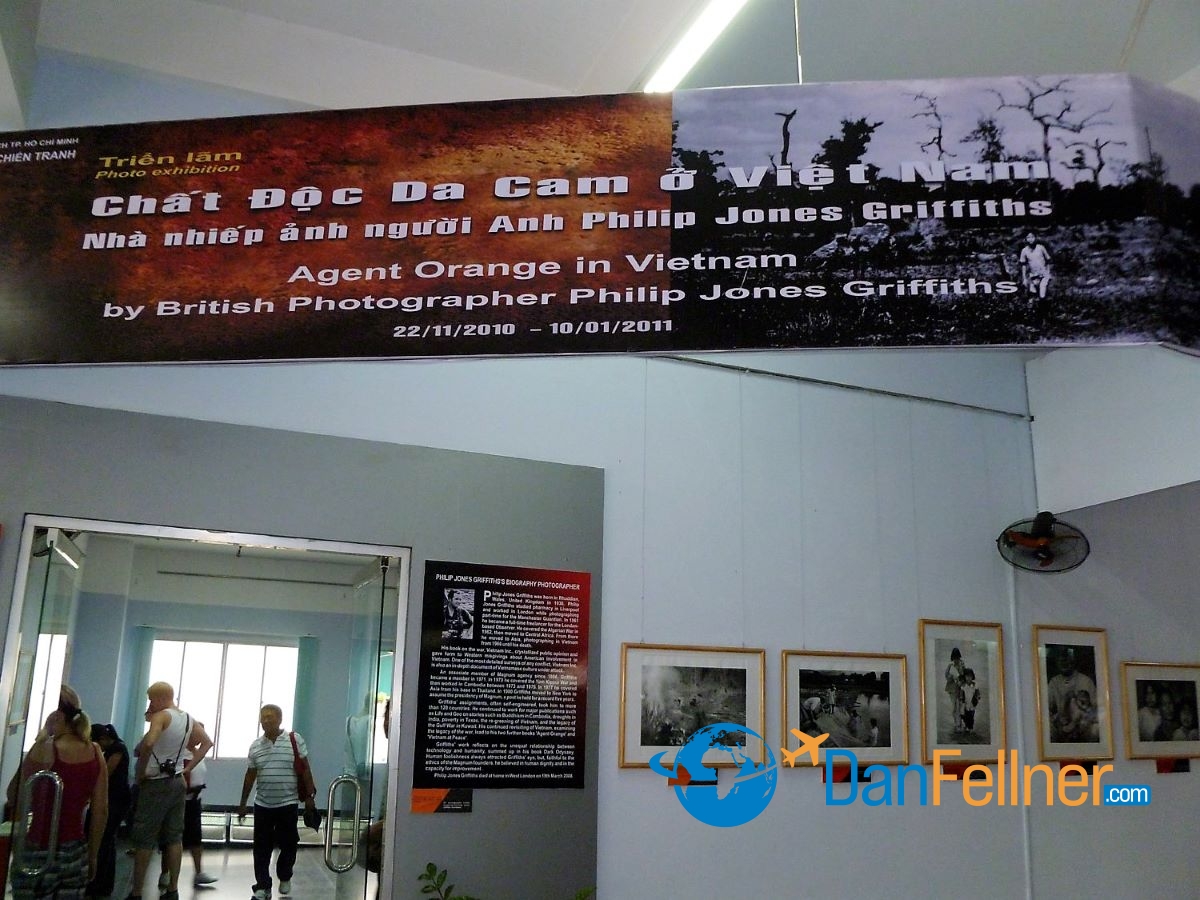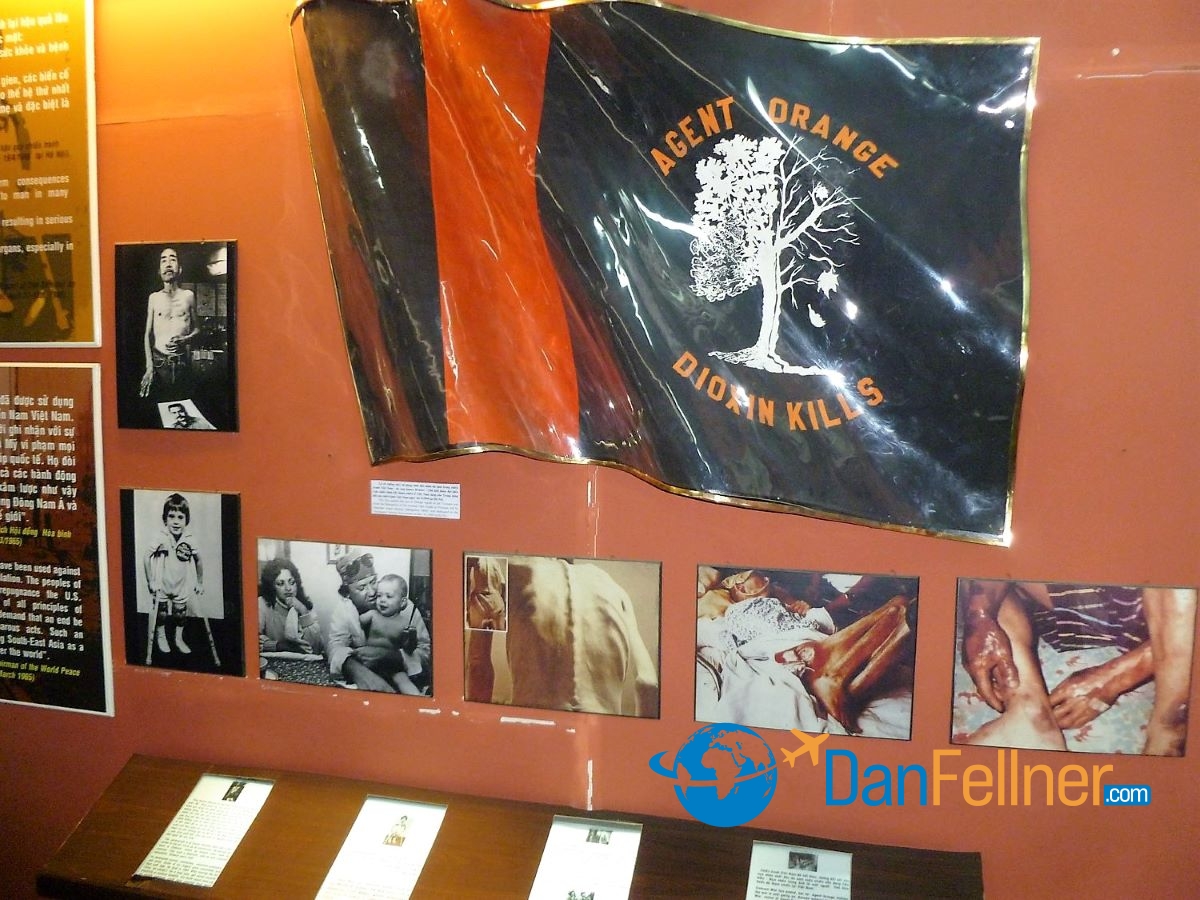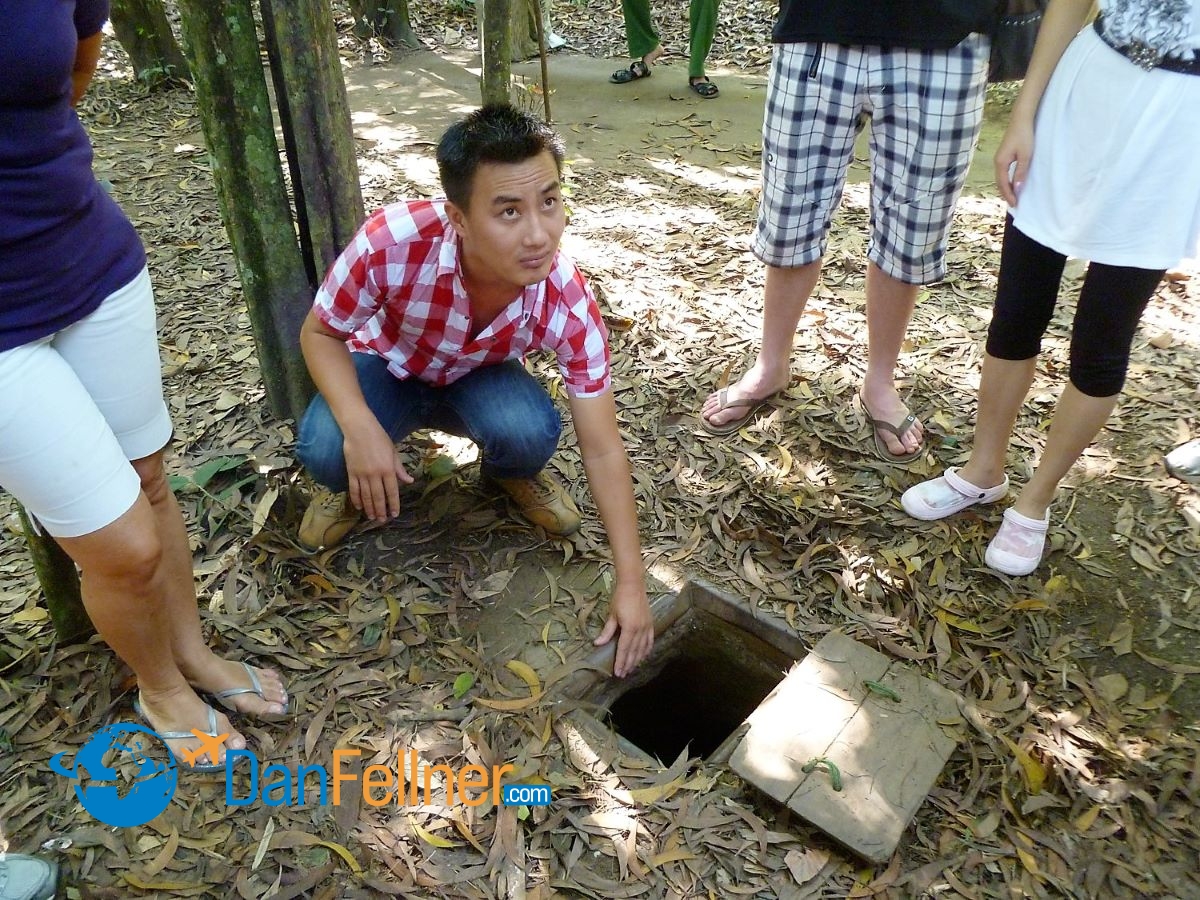Government dogmatic, but the people are welcoming to Americans
The Arizona Republic – February 12, 2011
HO CHI MINH CITY, Vietnam –As the old saying goes, “History is written by the winners.”
Nowhere is this more apparent than a museum dedicated to the Vietnam War in Ho Chi Minh City, the former capital of South Vietnam that was known as Saigon when it was America’s military headquarters during the war that ended 36 years ago.

U.S. military hardware displayed in front of the War Remnants Museum in Ho Chi Minh City.
Henry Stein, a friend from Tempe, and I had long wanted to visit Vietnam. We are both old enough to remember how the war divided American society in the 1960s and early ’70s, but were too young to have been drafted.
We were interested to learn how the Vietnamese people feel about America today as well as seeing some of the sites devoted to the war in which more than 58,000 Americans died.

Inside the War Remnants Museum, which first opened in 1975.
Our first stop was the War Remnants Museum, a 20-minute walk from our hotel in Ho Chi Minh city. To give you an idea of the tone of this highly vitriolic museum, operated by the Vietnamese government, it’s instructive to know what it was called when it first opened in 1975 — “The House for Displaying War Crimes of American Imperialism and the Puppet Government of South Vietnam.”
The title was later shortened to “The Museum of American War Crimes,” and then took on its current name in the mid-1990s when diplomatic relations between Vietnam and America were normalized.

An exhibit about Agent Orange, a herbicide used by the U.S. military during the Vietnam War.
Regardless of its title, the museum is full of over-the-top propaganda about the alleged atrocities committed by American troops, whom the museum calls “the foreign invaders,” on Vietnamese civilians.
There was almost a full floor devoted to Agent Orange, a herbicide used by the U.S. military to defoliate jungles that enemy troops used for cover. There were numerous photos of children born with birth defects the Vietnamese claim were the result of exposure to Agent Orange and even a gruesome display containing deformed fetuses.

A group of Vietnamese schoolchildren on a field trip to the War Remnants Museum in Ho Chi Minh City.
In a yard outside the museum, there were so many American tanks, airplanes and helicopters on display — weaponry that had been abandoned when the U.S. withdrew its troops from Vietnam in 1973 — it almost looked like a U.S. military museum.
As an American, it was painful to see how our troops and government were portrayed. There were even comparisons made to the Nazis.
Yes, there were civilian casualties during the Vietnam War, including the well-documented My Lai massacre. But I believe an overwhelming majority of our troops acquitted themselves bravely and honorably during the conflict, which was lost not because our military was defeated on the field of battle, but because the American public had grown weary of a war that seemingly had no end in sight.
The following day, we visited the infamous Cu Chi Tunnels north of the city, which the Viet Cong used as a base to attack Saigon.

The Cu Chi Tunnels north of Ho Chi Minh City.
At the end of the tour, a Vietnamese government propaganda film from the 1960s was shown, in which it referred to Viet Cong fighters as “American killer heroes.”
Despite the anti-Americanism we witnessed at government-run sites, we found the Vietnamese people to be friendly, welcoming, and always quick with a smile.
“We forget the past,” a tour guide told us.
Indeed, it’s a chapter of American history that many of us from that generation would like to forget but never will.




